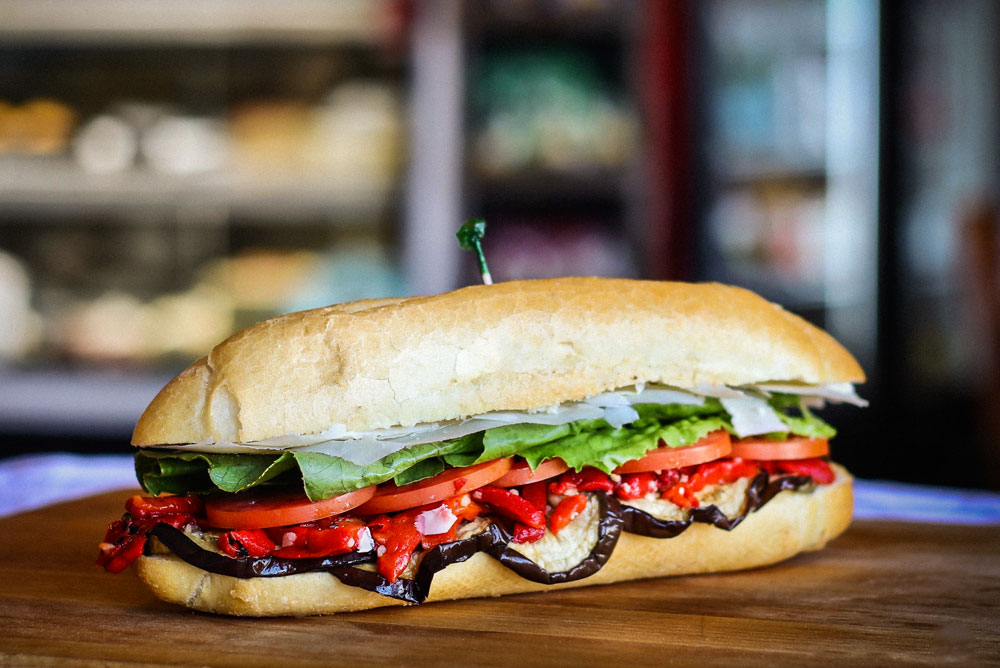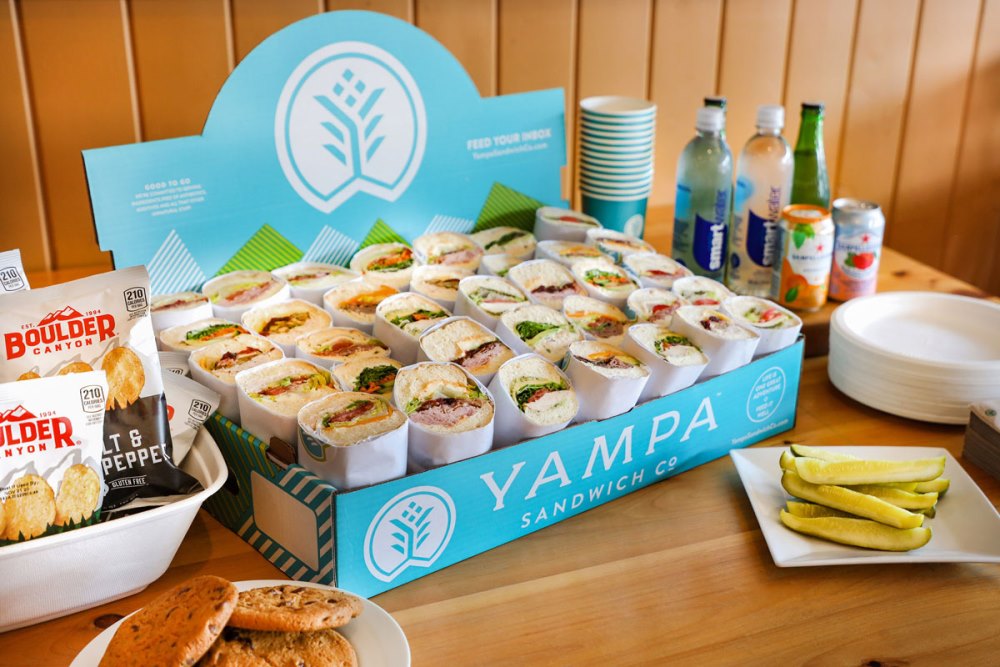It wasn’t until the 1990s when sandwich franchises became real competition against staple...


It wasn’t until the 1990s when sandwich franchises became real competition against staple...

From the late 1990s into the early 2000s, Subway sandwich franchises exploded into the quick-serve...

The sandwich: it’s one of the most versatile foods there is, and Americans love it. We love...
Who has the best sub franchises in the country? It’s a bit of a conundrum really because opinions...
The market for the best sandwich franchise opportunity is fierce, with big brand names with...
You’re ready to apply your experience and energy to your own business, and you know that you’re...
You have a mind for business and ambitions to start a sandwich shop; in fact, you’ve been dreaming...
David Pepin is a busy guy, and that’s the way he likes it. Dave and his business partner, Peter...
Ask any sandwich shop franchise owner about their business and they may talk about it as if it is...
Are you thinking of a smoothie franchise for sale? Let’s read more about before taking a decision...
There is nothing quite like a hearty sandwich piled a mile high with fresh, natural meats,...
A sandwich franchise is a business opportunity where an entrepreneur partners with an established sandwich brand, leveraging the brand’s name, products, and operational model to run a successful sandwich shop.
The sandwich franchise business model is built on a mutually beneficial partnership between the franchisor and the franchisee, with key elements such as licensing, royalties, fees, and support.
Selecting the right sandwich franchise involves evaluating potential opportunities based on factors such as investment cost, expected return, franchisor support, and market demand.
To make an informed decision, aspiring franchisees should carefully consider the following aspects of a sandwich franchise opportunity:
When considering a sandwich franchise opportunity, it’s natural to wonder about the potential earnings. While profits can vary depending on numerous factors, understanding the key aspects that influence profitability can help set realistic expectations and guide decision-making.
The success of a franchise sandwich shop is influenced by various factors. In this section, we’ll explore the main elements that contribute to the financial performance of a sandwich franchise.
The location of your sandwich franchise can significantly impact its profitability. High-traffic areas, such as shopping centers, business districts, and transportation hubs, tend to attract more customers and generate higher revenues. Careful research and analysis of the target market and competition are essential when choosing the right location for your franchise.
Partnering with a well-known and respected franchise brand can give your sandwich shop a competitive edge, as customers are often more inclined to visit establishments they recognize and trust. A strong brand presence can lead to higher customer loyalty and increased sales.
Efficient operations are crucial for maximizing profitability in a sandwich franchise. This includes effective inventory management, streamlined workflows, cost control measures, and staff training. Franchisors typically provide guidance and support in these areas, helping franchisees optimize their business processes.
Successful marketing campaigns are essential for driving customer traffic and boosting sales. Franchisees need to engage in local marketing efforts and take advantage of the franchisor’s national advertising campaigns to increase brand awareness and attract more customers.
The local competitive landscape can greatly impact the profitability of your sandwich franchise. It’s essential to understand your competitors’ strengths and weaknesses and identify opportunities to differentiate your franchise in terms of product offerings, pricing, and overall customer experience.
By carefully considering these factors and working closely with your franchisor, you can maximize the potential earnings of your franchise sandwich shop and achieve long-term success.
Determining the number one sandwich franchise is subjective, as different factors such as sales, customer satisfaction, and growth potential can influence the ranking. Here, we will explore some of the top sandwich franchises that have made a significant impact in the industry.
With over 40,000 locations worldwide, Subway is the largest sandwich chain, known for its customizable, made-to-order sandwiches and commitment to healthier food options. The brand offers a wide range of subs, wraps, and salads, catering to various tastes and dietary preferences.
Famous for its “freaky fast” delivery service, Jimmy John’s has built a loyal customer base with its gourmet sandwiches made from high-quality ingredients. The brand emphasizes simplicity, consistency, and speed, providing a unique experience in the sandwich franchise market.
Jersey Mike’s Subs stands out for its freshly sliced deli meats, cheeses, and signature “Mike’s Way” toppings. With a focus on quality and authenticity, the brand has experienced rapid growth and continues to attract customers looking for a genuine East Coast-style sub experience.
Founded by former firefighters, Firehouse Subs offers a unique theme and a menu filled with hot specialty subs. The brand is also dedicated to giving back to the community through its Firehouse Subs Public Safety Foundation, which provides support to first responders and public safety organizations.
Yampa Sandwich Co. is an emerging player in the sandwich franchise market, known for its delicious, fresh, and made-to-order sandwiches, salads, and wraps. The brand prides itself on using high-quality ingredients and offering a diverse menu that caters to various dietary preferences.
Yampa Sandwich Co.’s commitment to sustainability, community involvement, and providing a warm, welcoming atmosphere for customers sets it apart from other franchises. As the brand continues to grow, it’s becoming a popular choice for entrepreneurs looking for a unique and innovative sandwich franchise opportunity.
While each of these franchises has achieved considerable success, it’s essential to evaluate the specific needs and goals of your business when selecting the best sandwich franchise opportunity for you.
Investing in a sandwich franchise offers numerous advantages such as an established business model, lower risk, and potential for growth in the food industry, making it an attractive opportunity for aspiring entrepreneurs.
Understand the primary benefits associated with owning a sandwich franchise, such as established business systems, brand reputation, and access to comprehensive training and support.
Opening a sandwich franchise requires a significant financial investment, which includes various startup costs such as franchise fees, leasehold improvements, equipment, inventory, and marketing expenses.
To understand the financial commitment involved in opening a sandwich franchise, it’s essential to consider the following key startup costs: